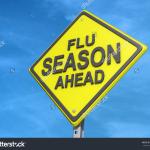Flu Vaccine Updates for 2016-2017
influenza
An updated report from the CDC said that as of February
The latest in health news: anti-vaxxers stand by their beliefs while measles breaks in Disney and a new study confirms their safety, antiviral drugs may be the alternative to the failed flu shots but not all experts agree, and in the court of publ



